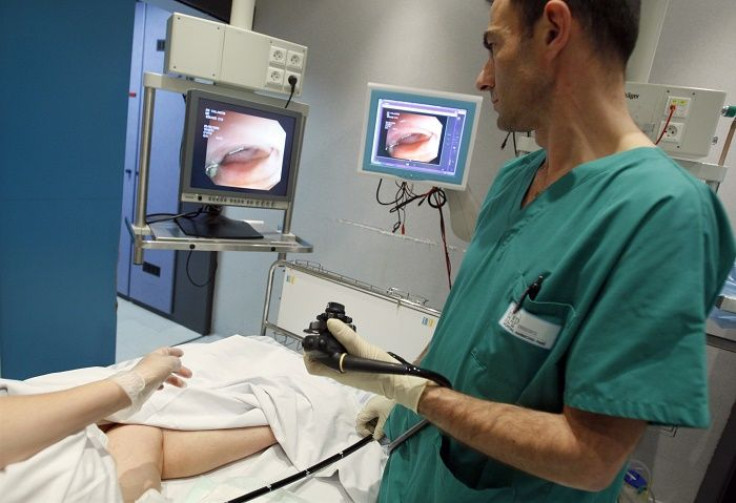Colon Cancer Screening: Do-It-Yourself Test May Be Effective Alternative To Colonoscopy

It's highly recommended people start getting screened for colon cancer once they turn 50 — but according to the Centers for Disease Control and Prevention, one in three U.S. adults don't because of its invasive procedure — the colonoscopy. There may be hope, though: New research published in the Annals of Internal Medicine affirms the fecal immunochemical test (FIT) is an effective, less invasive way to screen for cancer.
While the FIT is a common, at-home method, experts were unsure of how well it would hold up over several years of annual testing. Researchers not only confirmed FIT was "highly sensitive for detecting" colon cancer through a person's stool, but they found people weren't as reluctant to take it compared to colonoscopy. Unlike colonoscopy, which should be done once every 10 years, the FIT "doesn't require dietary changes or medications," Dr. Alok Khorana, an oncologist at a gastrointestinal cancers program at Cleveland Clinic, told CBS News. "Logically, it's a little bit easier and does have a higher detection rate than the fecal occult blood test [FOBT]." Khorana was not involved with the study.
Researchers from Kaiser Permanente Northern and Southern California collected and analyzed data from more than 323,000 health plan members between the ages 50 and 70 years old, who participated in the first round of FIT. The participants were then followed up to four screening rounds after the fact.
Overall, the results showed FIT tests detected colon or rectal cancer in 80 percent of patients who were diagnosed with the disease within one year of testing. About 85 percent of colon cancer cases were detected in round one, and 73 to 78 percent were detected in subsequent rounds. These detection rates demonstrate FIT's efficacy as a screening test for colon cancer, said Khorana.
FIT isn't the only non-invasive screening test for colon cancer. As previously mentioned, the FOBT can also detect blood in the stool, but it relies on a different lab technique. The current study, however, suggests FIT detects cancer better than FOBT.
While the number of people who agreed to do the FIT test dropped over the course of the study, the study found FIT patients were more consistent when it came to annual testing for four years. This would suggest the at-home test is not only effective, but it’s also capable of increasing the rate of early detection.
Source: Jensen CD et al. Fecal Immunochemical Test Program Performance Over 4 Rounds of Annual Screening: A Retrospective Cohort Study. Annals of Internal Medicine. 2016.



























